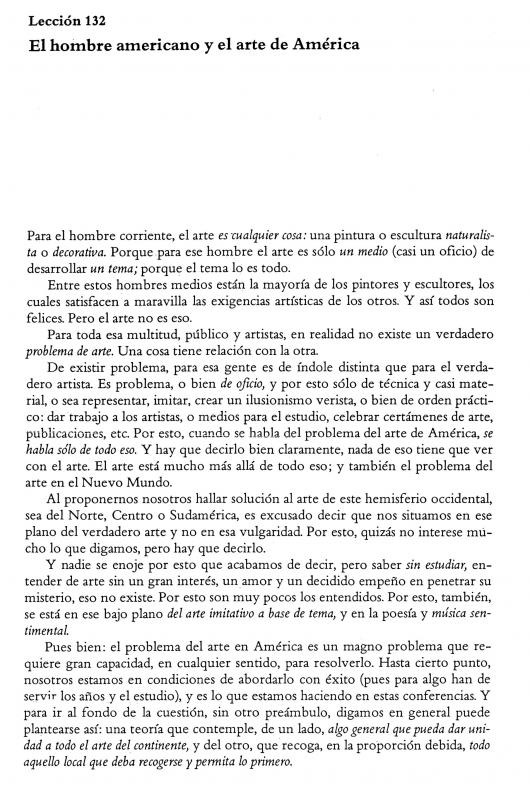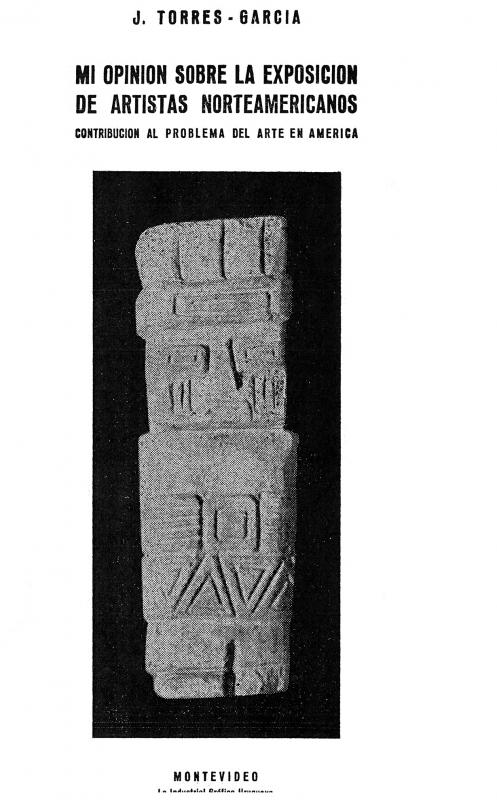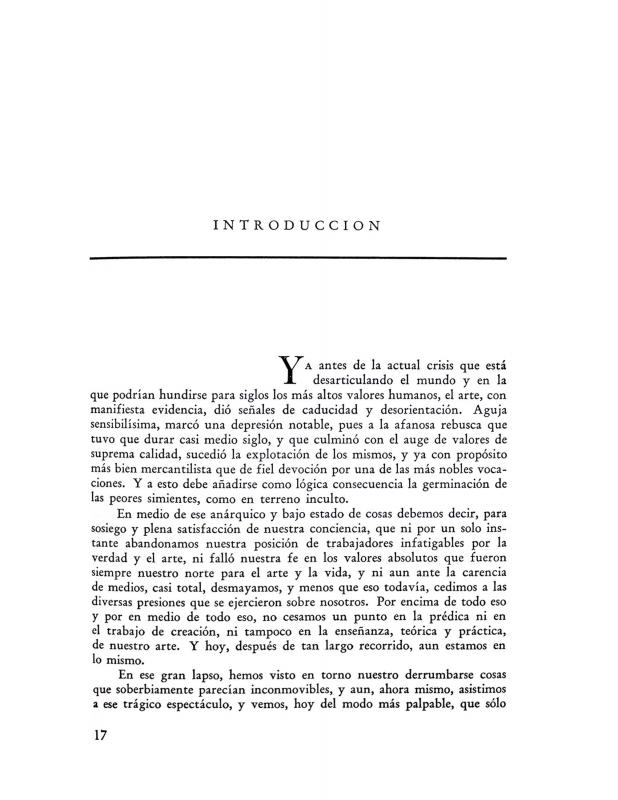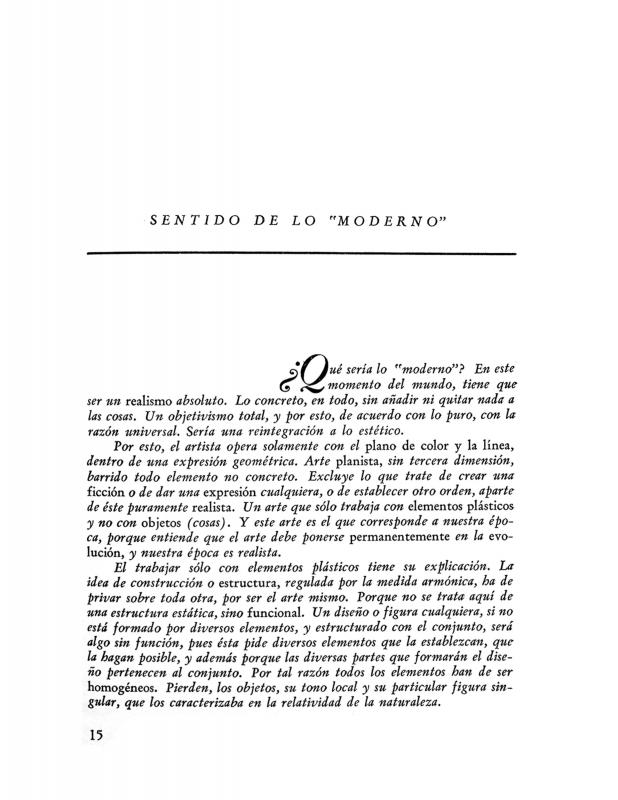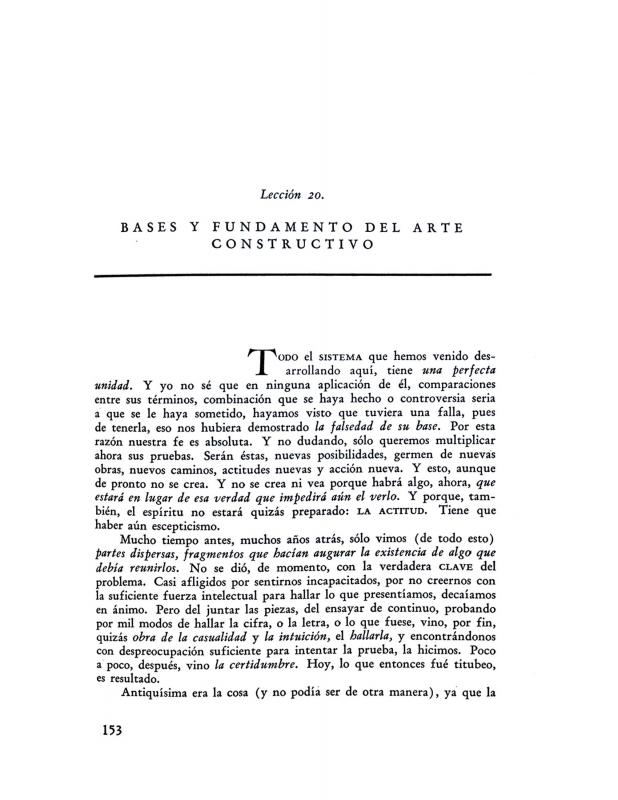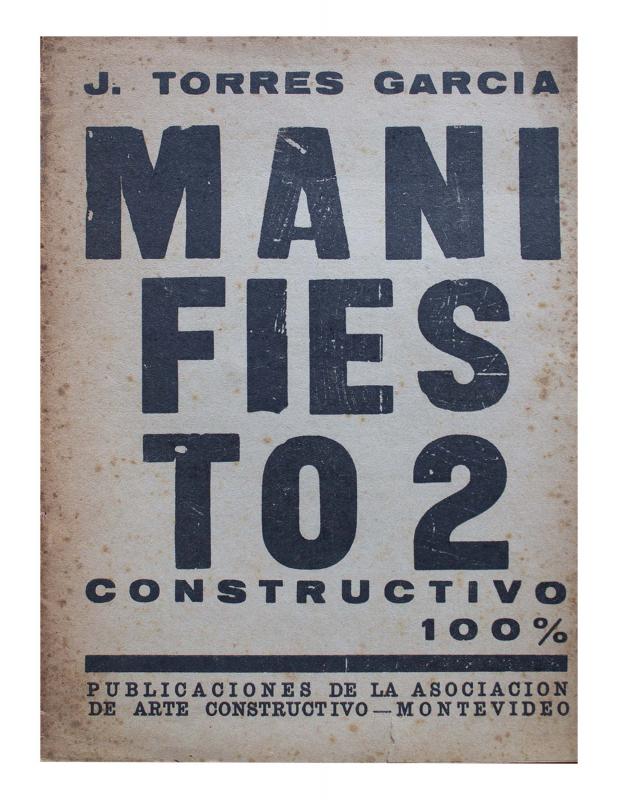José Enrique Rodó (1871–1917), one of the most outstanding writers of the so-called Generación del Novecientos [Nine-hundreds Generation], described his essay “Ariel” as a philosophical and pedagogical treatise addressed to the youth of Latin America. In this letter, Joaquín Torres García (1874–1949) refers to Rodó’s essay. The two intellectuals agree on the importance of education and an art teaching style inspired by an aesthetic sensibility. They also agree that, if Europeans were to be exposed to Uruguayan art (which could thus reclaim its spiritual values amid the onslaught of functionalist “utilitarianism” currently in vogue), certain basic principles were in order: to live up to the standards of Greek and Latin culture; to practice art as a mental activity; and to enrich what they both considered to be everlasting humanist values. As Rodó states in “Ariel,” Latin American youth’s greatest responsibility is to preserve the Greek concept of classical civilization and adapt its model of “democracy.” In 1916, JTG wrote his essay on “El descubrimiento de sí mismo” [The Discovery of One’s Self], and “Notas sobre Arte” [Notes on Art]. Both these works reveal his focus on a certain tension or paradox that interested him for many decades: a “modern classicism” that could modernize art’s tradition of eternal values. At the same time, JTG was beginning to obsess over the idea of returning to Uruguay. He often discussed this idea in 1917–18 when he traveled from his home in Tarrasa to Barcelona to visit Rafael Barradas, another Uruguayan artist living in Spain. JTG and Barradas were close friends until the latter’s premature death in 1929.
[As complementary reading, see the following articles in the ICAA digital archive written by Joaquín Torres García: “Con respecto a una futura creación literaria” (doc. no. 730292); “Lección 132. El hombre americano y el arte de América” (doc. no. 832022); “Mi opinión sobre la exposición de artistas norteamericanos: contribución” (doc. no. 833512); “Nuestro problema de arte en América: lección VI del ciclo de conferencias dictado en la Facultad de Humanidades y Ciencias de Montevideo” (doc. no. 731106); “Introducción [en] Universalismo Constructivo” (doc. no. 1242032); “Sentido de lo moderno [en Universalismo Constructivo]” (doc. no. 1242015); “Bases y fundamentos del arte constructivo” (doc. no. 1242058); and “Manifiesto 2, Constructivo 100%” (doc. no. 1250878)].


